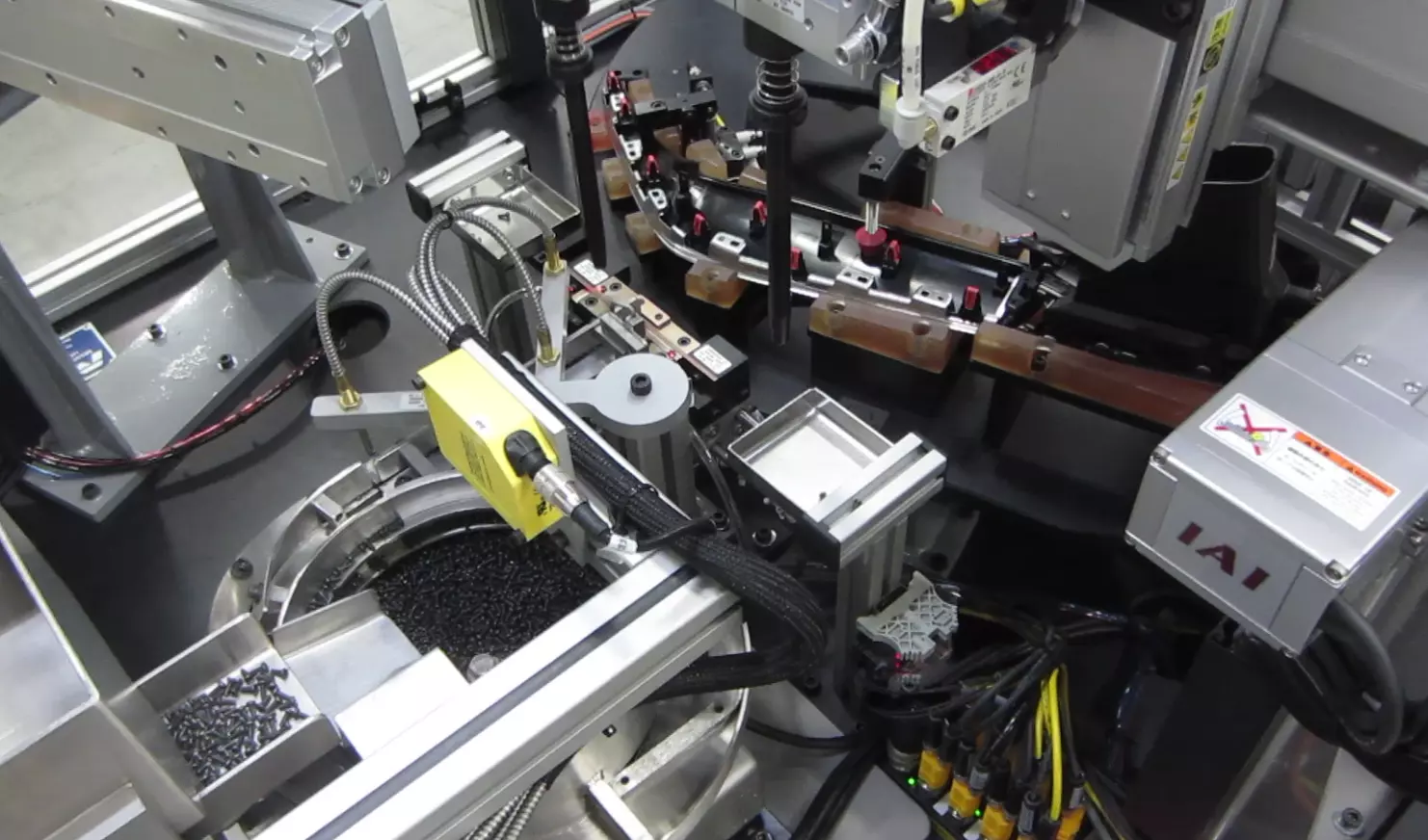Common Applications
- Transmission and engine components
- Automated material handling and palletized conveying
- Conventional, hybrid and electric vehicle technology
- Data collection
- Part refinement, inspection, and defect management
- Clutch & fuel component lines
- Fuel, water and oil pumps
- Steering systems
- Safety products
- Robotic high-speed assembly lines Hinge Assembly
- Gearboxes
- HVAC
- Interior components
- Turbo systems & components
- Fuse boxes
- Sensors and actuators
- Control modules
- Electronic component assembly
- Alternative energy systems

Video Gallery
Seat Sensor Assembly Machine
Automotive Door Handle Position Sensors
View our Video Library of automation solutions
Our Value
ISO 9001 certified
ITAR compliant
Established partnerships with all major robotic & sensor companies
Extensive national network to provide localized service and support
75,000 sq.ft. of manufacturing facilities

